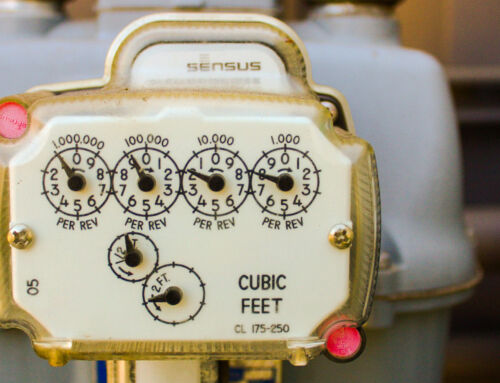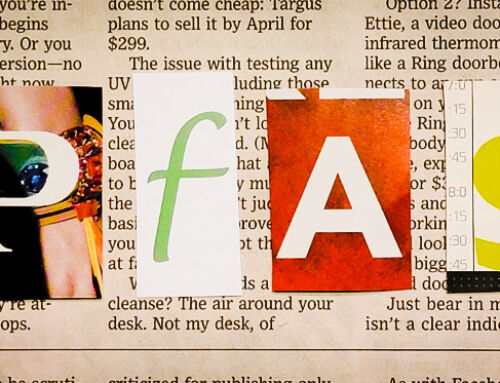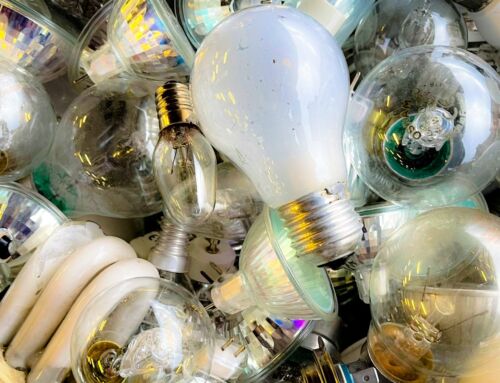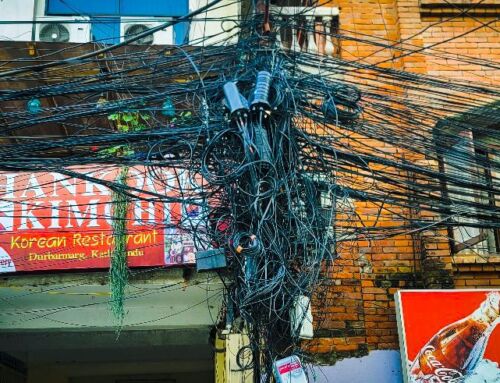View by Topic
Recent Articles
-
Colorado Building Energy Performance Standards (BEPS) Laws ChallengedSaturday, May 4th, 2024
-
New Environmental Laws from the 2024 Maryland Legislative SessionSaturday, April 27th, 2024
-
EPA Designates PFOA and PFOS as Hazardous Substances under Superfund LawSaturday, April 20th, 2024
-
Federal Government Finalizes New Efficiency Standards for LightbulbsSaturday, April 13th, 2024
-
2024 IECC is Final After Addressing Preemption IssuesSaturday, April 6th, 2024
View by Month/Year
“Green Building Law Update” Headlines
Recent Articles & News from
Stuart Kaplow’s blog
at GreenBuildingLawUpdate.com
- Does Federal EPCA Trump Colorado Building Energy Performance Standards (BEPS)? May 5, 2024
- New Environmental Laws in Maryland: 2024 Brings Opportunities for Businesses April 28, 2024
- EPA Takes Action: PFOA and PFOS Now Hazardous Substances Under Superfund Law April 21, 2024
- Shedding Light on the Future: The Evolution of Lightbulbs in the Wake of New Energy Efficiency Standards April 14, 2024
Subscribe to the Green Building Law Update!
Stuart Kaplow brings his expertise and extensive experience to the table with his unique digital publication, "Green Building Law Update". Subscribers receive regular updates to keep them informed about important issues surrounding Environmental Law, Green Building & Real Estate Law, as well as the emerging demand for Environmental Social Governance (ESG).
Get fresh content through the lense of Stuart Kaplow's cutting-edge expertise, innovative commentary and insider perspective. Don't miss another issue! Subscribe below.
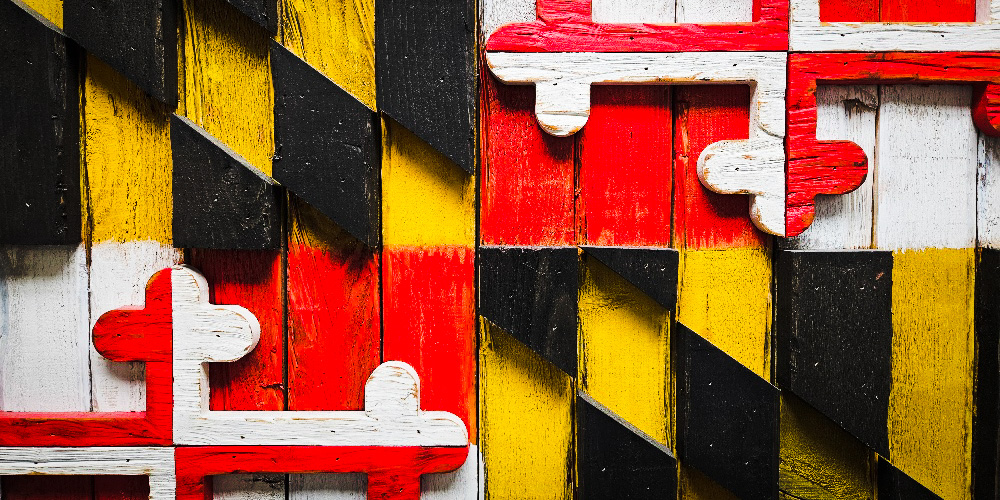
New Environmental Laws from the 2024 Maryland Legislative Session
The 446th session of the Maryland General Assembly concluded on April 8, 2024. With 1,052 bills and one resolution passed by the legislature, the governor has already signed 120 bills into law and has until May 28 to sign or veto the remainder of the legislation.
It was a busy 2024 session with more than 3,480 bills introduced.
This post is a compilation of the environmental and sustainability legislation enacted in this session, including links to each bill. As the author, I determine what is an environmental bill. Time and space do not allow recitation of the more than 300 failed bills we tracked.
Maryland has been described as having more pages of environmental statutes and regulations per capita than any other state. The new laws compiled below add to that already very green environmental regulatory scheme. But something was different this session. To quote Walt Mossberg and Kara Swisher in their last WSJ column, “In taking a page from the tech industry .. it was once again time to refresh, reimagine, remake and reinvent” the regulation of environmental matters.
Savvy players, not just those in the environmental industrial complex, will find business opportunities to lead and profit in environmental and sustainability matters, including opportunities to monetize these newly enacted state laws.
Greenhouse Gas Emissions
The two most significant environmental acts of the Maryland General Assembly were not legislation in the traditional sense. First, on January 29, 2024, the Joint Committee on Administrative, Executive, and Legislative Review (AELR) put a “hold” on the proposed regulations to create the Maryland Building Energy Performance Standards (BEPS) that require all buildings in the state that are 35,000 square feet or more be net zero greenhouse gas emission by 2040, as required by the Climate Solutions Now Act of 2022, Chapter 38 of 2022, apparently out of concern that the proposed implementing regulations went too far beyond what the 2002 statute authorized.
Second, when the legislature enacted the State Budget, it adopted Conference Committee Amendment No. 9, “funds appropriated for the purpose of final development and submission of energy use intensity targets and standards regulations to the Joint Committee on Administrative, Executive, and Legislative Review may not be expended until the Maryland Department of the Environment submits ..” reports on matters of energy use intensity (EUI) and associated concepts to the budget committees; having the effect of an extended pause, if not causing MDE to completely start anew proposing the BEPS program as proposed by MDE. (Yes the budget was adopted by Senate Bill 360, but the available version does Not include the Conference Committee amendments. They may be found on page 255 in the Joint Chairmen’s Report.)
House Bill 990 (passed) causes State greenhouse gas emissions reduction requirements to apply to the production of cement by removing the production of cement from the definition of “manufacturing.” All other manufacturing is protected from State regulation of GHG emissions reductions. The bill was significantly amended, ameliorating its harsh effect, now requiring MDE to make specific findings and consult with specified stakeholders in advance of promulgating any regulations negatively impacting the production of cement, all of which may in the end do more good than harm (.. just the opposite of what the bill as introduced proposed) in protecting the vital industrial sector of cement manufacturer from future GHG emission regulation.
The Maryland EmPOWER Program is a slate of energy efficiency and energy conservation programs funded by a per kilowatt hour surcharge on all utility ratepayers. Among other things, House Bill 864 (passed) alters EmPOWER by providing, subject to Public Service Commission approval, electric and gas companies in concert with the Department of Housing and Community Development must redistribute ratepayer collected funds to implement programs and services (.. different from the Program’s current aims of reducing energy consumption and providing assistance to limited income households) to now promote the greenhouse gas emission reduction and conservation of energy, demand response, and beneficial electrification by consumers, electric companies, gas companies, and DHCD, all in support of the GHG emissions reduction goals and targets. Annual GHG emissions reduction targets must be at least 2.0% in 2024, 2.25% in 2025 and 2026, and 2.5% per year in 2027 and annually thereafter, without regard to exacerbating the unaffordability of electricity and increased risks to electric reliability.
House Bill 1435/ Senate Bill 783 (both passed) known as the Brighter Tomorrow Act seeks to bolster solar in the State that has failed to keep pace with the Renewable Portfolio Standard nation leading mandate of 14.5% solar power by 2030 (i.e., 55% of that target by 2022), by among other matters causing the PSC to establish a Small Solar Energy Generating System Incentive Program (a key feature of which will include an artificially inflated value for SRECs). Out of concern, this is too little too late to drive the marketplace for solar in Maryland the bill, which was the work product of a widely criticized state government task force also modifies existing solar property tax credits and allows local governments to utilize Payment In Lieu of Taxes. It requires that certain home improvement contracts for the installation of rooftop solar include the installation of a certain wildlife barrier under certain circumstances; altering the maximum generating capacity authorized for certain net metered generating facilities; authorizing an eligible customer generator participating in certain meter aggregation to receive excess generation from more than one generating system; and, altering the expiration date of SRECs.
House Bill 579/ Senate Bill 474 (both passed) filed as the Critical Infrastructure Streamlining Act which became known as the Data Center Bill, alters the definition of “generating station” to exempt the construction of certain backup generators (.. that are of paramount importance) at data centers used to produce electricity for onsite emergency backup and certain test and maintenance operations from the requirement to obtain a certificate of public convenience and necessity or certain other related approvals; and gained the support of many environmental groups by allocating 15% of the annual corporate income tax paid by data centers to the Strategic Energy Investment Fund, which ended up being the only new source of funding for climate initiatives created during the session.
Waste Management
Senate Bill 325/ House Bill 1 (both passed) require a producer of paint (technically, architectural coatings and paint) sold at retail in the State, to submit, by July 1, 2025, a plan for the establishment of a Paint Stewardship Program to MDE for approval; pay a plan review fee to MDE; implement the program, including post consumer paint collection, within six months after plan approval; submit annual reports for MDE review; and pay annual report review fees to MDE. The bill makes paint different than other recycled materials in the State. Of note, there are similar industry managed programs elsewhere, but the legislature heard they are expensive and this will increase the cost of paint in Maryland.
House Bill 457 (passed) requires a producer or seller of synthetic turf to disclose to a customer before the sale of synthetic turf the maintenance that is typically performed throughout the lifespan of synthetic turf, as well as the typical costs for removing, replacing, and disposing of synthetic turf. Additionally, MDE, in consultation with several stakeholders, must conduct a study on synthetic turf, existing synthetic turf fields in the State, and the synthetic turf industry in the State. MDE must report its findings by July 1, 2026.
There are existing restrictions limiting lead and PFAS chemicals in certain products in the Environment Article. House Bill 1147 (passed) expands upon these restrictions by prohibiting a person from installing, supplying, selling, soliciting, or offering for sale in the State playground surfacing materials that contain either more than 90 parts per million of lead or a component product, material, or substance to which PFAS chemicals were previously intentionally added. All of which sounds good but is two steps behind what the U.S. EPA has proposed.
Clean Energy
House Bill 1296 (passed) requires the PSC to resuscitate the State’s offshore wind power generating efforts by opening an additional round of offshore wind project proceedings that will be limited to evaluating revised project schedules, sizes, or pricing for a previously approved project. The bill also allows any first round offshore project to seek PSC approval to amend its previously approved project to increase the maximum amount of ORECs and modify its project schedule. This is one of only a few bills there has been a groundswell requesting a gubernatorial veto in large measure because it alters existing ratepayer protections when the first round process requires consideration of changes in economic conditions since the first project awards. Last year, Chapter 95 of 2023, established a State goal of reaching 8,500 megawatts of offshore wind energy by 2031.
Among other things, Senate Bill 570/ House Bill 397 (both passed) authorize an electric company, a gas company, or a water company to own, manage, and recover costs associated with a thermal energy network system (i.e., connecting multiple buildings through a loop). And, by July 1, 2025, each gas company that serves at least 75,000 customers must submit at least one proposal for a pilot thermal energy network system to PSC for approval.
Among other things, Senate Bill 783 (passed) establishes the Customer-Sited Solar Program within the Maryland Energy Administration to provide grants to low to moderate income electric company customers (or a third party applying for a grant on behalf of a customer) for new solar energy generating systems, funded by reallocated solar alternative compliance payment revenues within SEIF. The program may provide grants to an income verified eligible customer-generator with a low to moderate income, up to $750 per kilowatt of nameplate capacity for a solar energy generating system, up to a maximum of $7,500 per system.
The most cutting edge legislation of the session, Senate Bill 959/ House Bill 1256 (both passed) among other things, makes Maryland the first state to require utilities to allow electric vehicles with bidirectional chargers to connect to the distribution grid things, that is vehicle to grid (V2G) technology. The PSC must also develop a program for each investor owned electric company to establish a pilot program or temporary tariff to compensate owners and aggregators of distributed energy resources for electric distribution system support services, and several other voluntary renewable energy incentives.
State Buildings
Chapter 289 of 2020 codified Executive Order 01.01.2019.08, which required the State to reduce energy consumption in State owned buildings by 10% by 2029 compared with a fiscal 2018 baseline. Executive Order 01.01.2023.07 rescinds the 2019 executive order and instead requires the State to reduce energy consumption in all State owned buildings by 20% by 2031, compared with the fiscal 2018 baseline. Senate Bill 258 (passed) repeals statutory language that implemented the 2019 executive order and instead codifies provisions from the 2023 executive order that implement the new target, without identifying a funding source for what some legislators were concerned is an energy service provider boondoggle.
Trees
House Bill 1511 (passed) delays the effective date of specified provisions of Chapters 541 and 542 of 2023 which modify State law relating to forest preservation and retention, from July 1, 2024, until July 1, 2026. The bill, however, makes changes to the definition of “qualified conservation,” adds an exemption from Forest Conservation Act afforestation requirements for specified solar photovoltaic facilities, and establishes provisions related to forest mitigation banking and priority areas/ vegetation that are identical, or appear intended to be identical, to provisions under Chapters 541 and 542, allowing those changes to take effect July 1, 2024.
State law governs certain tree care work done for compensation, on private or public property, and protects consumers by licensing qualified and insured tree care companies and individual tree experts. Senate Bill 683/ House Bill 561 (both passed) allow the Department of Natural Resources to set fees for licensed tree experts who are often low or moderate income immigrants that, instead of being limited to the costs of processing an application, may be up to $45 for an examination, $55 for initial licensure, and $100 for license renewal. The bill explicitly authorizes DNR to adopt regulations to implement the statutory provisions related to tree experts.
Chesapeake Bay
Each jurisdiction in Maryland is responsible for managing development in its portion of the Chesapeake Bay Critical Area through a local program. Among other things, House Bill 233 (passed) modifies the Chesapeake and Atlantic Coastal Bays Critical Area Protection Program to require locals to incorporate climate resilience, environmental justice, and equity measures. The bill also allows local programs to be reviewed once every 10 years rather than the 6 year interval required today. The also bill modifies density calculations for development in the Critical Area and alters the circumstances under which changes to Critical Area designations and zoning map amendments may be granted.
Senate Bill 268 (Ch. 80) alters the enforcement and after the fact application approval procedures required as minimum elements of a local jurisdiction’s Chesapeake and Atlantic Coastal Bays Critical Area Program to apply to all Critical Area violations.
Standing
Under Sackett v. EPA, 598 U.S. 651 (2023), the U.S. Supreme Court narrowed the scope of the bodies of water that are subject to the protections of the federal Clean Water Act. Senate Bill 653/ House Bill 1101 (both passed) The Clean Water Justice Act of 2024 establishes, after a great deal of lobbying on all sides, standing, for a person that meets the threshold standing requirements under federal law, in civil claims arising under specified standards relating to nontidal wetlands that do not have a continuous surface connection to surface water and discharges of pollutants affecting ephemeral streams or intermittent streams. The bill authorizes a person who has standing under this new enactment to bring a civil action against any person or political subdivision which is alleged to violate those standards. The bill will significantly weaken MDE when it also authorizes a person who meets the threshold standing requirements under federal law to intervene in a civil action brought by MDE relating to nontidal wetlands (similar authority already exists, and is reestablished under the bill, with respect to a civil action relating to the discharge of pollutants to waters of the State).
Wells
PFAS chemicals are pervasive and are linked to health hazards, but they are largely not regulated in Maryland. Senate Bill 956/ House Bill 1153 (both passed) require MDE, in collaboration with publicly owned treatment works and specified “significant industrial users” (.. a term critics of the bill suggest is misleading when for example it includes houses of worship and others who discharge 25,000 gallons a day), to by October 1, 2024, identify the significant industrial users that currently and intentionally use PFAS chemicals; by June 1, 2025, develop PFAS action levels for addressing PFAS contamination from industrial discharge for pretreatment permits; and by September 1, 2025, develop specified mitigation plans for addressing PFAS contamination from industrial discharge for pretreatment permits. In addition, MDE must develop PFAS monitoring and testing protocols for significant industrial users and update its PFAS Action Plan. Recent changes in federal environmental rules may cause this bill to be of limited efficacy if at all.
Indoor Air Quality
House Bill 238 (passed) prohibits vaping in certain indoor areas and places of employment and certain mass transportation; requiring that certain signs be posted in each public indoor area and each public entrance to an indoor area where smoking or vaping is prohibited; requiring the convening of a workgroup to study the issuance of alcoholic beverages licenses to tobacconists; and prohibiting the issuance of a local alcoholic beverages license to a tobacconist from July 1, 2024, to July 1, 2026.
Flooding
Senate Bill 148/ House Bill 449 (both passed) authorizes the Governor, for fiscal 2026 and each fiscal year thereafter, to include in the annual State budget an appropriation for the comprehensive flood management grant program of up to $20 million (in fiscal 2025 the program was funded at $10 million with general obligation bonds). So, the bill is really an environmental justice initiative when it requires that, for fiscal 2026 and each fiscal year thereafter, at least 40% of funding provided under the program be used for projects located in or directly benefiting underserved or overburdened communities.
Consumer Protection
Senate Bill 1 (passed) is a consumer protection act related to the retail sale of electricity although some provisions also apply to nonresidential service. It establishes an energy salesperson license for certain persons that offer or sell electricity or gas supply agreements to customers in the State; establishes an energy vendor license for certain persons that provide energy sales services in the State; prohibits a certain electricity supplier from marketing electricity as green power unless certain conditions are met; and broadly seeks to regulate this space, including applying portions of this Act prospectively.
If I can assist you in finding business opportunities to lead and profit in environmental and sustainability matters advantaged by these newly enacted state laws, or if we can otherwise assist your business with an environmental matter, do not hesitate to give me a call.
The Maryland General Assembly is next scheduled to reconvene on January 8, 2025.
Thank you to the Maryland Department of Legislative Services for the information in this post.
_____________________
Please join us for our webinar “New Environmental Laws from the 2024 Maryland Legislative Session” on Tuesday, May 14 from 9 – 9:30 am EDT presented by Stuart Kaplow. The webinar is complimentary, but you must register here.





